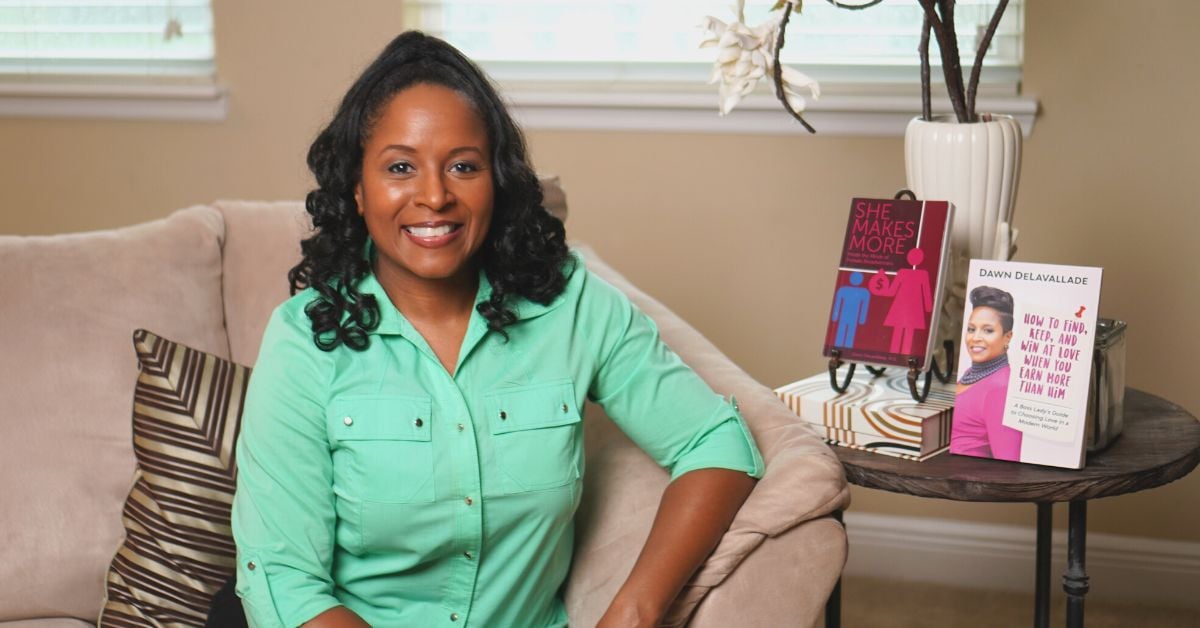Being a Teleradiologist Was a Nightmare at First, but Now It’s My Dream Job
Practicing in teleradiology is amazing, or it’s your worst nightmare.How do I know? Because I’ve been in two telerad positions that couldn’t have...

Remote radiologist jobs with flexible schedules, equitable pay, and the most advanced reading platform. Discover teleradiology at vRad.

Radiologist well-being matters. Explore how vRad takes action to prevent burnout with expert-led, confidential support through our partnership with VITAL WorkLife. Helping radiologists thrive.

Visit the vRad Blog for radiologist experiences at vRad, career resources, and more.

vRad provides radiology residents and fellows free radiology education resources for ABR boards, noon lectures, and CME.

Teleradiology services leader since 2001. See how vRad AI is helping deliver faster, higher-quality care for 50,000+ critical patients each year.

Subspecialist care for the women in your community. 48-hour screenings. 1-hour diagnostics. Comprehensive compliance and inspection support.

vRad’s stroke protocol auto-assigns stroke cases to the top of all available radiologists’ worklists, with requirements to be read next.

vRad’s unique teleradiology workflow for trauma studies delivers consistently fast turnaround times—even during periods of high volume.

vRad’s Operations Center is the central hub that ensures imaging studies and communications are handled efficiently and swiftly.

vRad is delivering faster radiology turnaround times for 40,000+ critical patients annually, using four unique strategies, including AI.
.jpg?width=1024&height=576&name=vRad-High-Quality-Patient-Care-1024x576%20(1).jpg)
vRad is developing and using AI to improve radiology quality assurance and reduce medical malpractice risk.

Now you can power your practice with the same fully integrated technology and support ecosystem we use. The vRad Platform.

Since developing and launching our first model in 2015, vRad has been at the forefront of AI in radiology.

Since 2010, vRad Radiology Education has provided high-quality radiology CME. Open to all radiologists, these 15-minute online modules are a convenient way to stay up to date on practical radiology topics.

Join vRad’s annual spring CME conference featuring top speakers and practical radiology topics.

vRad provides radiology residents and fellows free radiology education resources for ABR boards, noon lectures, and CME.

Academically oriented radiologists love practicing at vRad too. Check out the research published by vRad radiologists and team members.

Learn how vRad revolutionized radiology and has been at the forefront of innovation since 2001.

%20(2).jpg?width=1008&height=755&name=Copy%20of%20Mega%20Nav%20Images%202025%20(1008%20x%20755%20px)%20(2).jpg)

Visit the vRad blog for radiologist experiences at vRad, career resources, and more.


Explore our practice’s reading platform, breast imaging program, AI, and more. Plus, hear from vRad radiologists about what it’s like to practice at vRad.

Ready to be part of something meaningful? Explore team member careers at vRad.
5 min read
 Dawn DeLavallade, MD
:
March 16, 2023
Dawn DeLavallade, MD
:
March 16, 2023

In the U.S., 22% of marriages have women breadwinners over the age of 30[1]. These relationships face unique challenges and experience as much as 50% increased divorce rate[2]. In addition to being a full-time radiologist, I’m also a writer and host a podcast on this topic. Stemming from financial inequities experienced in my own marriage, and the resulting challenges, I was inspired to delve into the psyche of the Female Breadwinner. I learned that my situation was not unique.
Women earning more than their spouses are like pioneers; we don’t have mentors to show us how to navigate this dynamic. In addition, long-standing societal norms still portray husbands as the primary breadwinners.
In my first book, She Makes More-Inside the Minds of Female Breadwinners, I share insights from my experience and research for couples where the women are out-earning their male spouses. However, many of these concepts apply equally well to any partnership. Let’s have a look at some issues that may arise in these relationships and how to handle them.
The higher earner in a relationship might work longer hours and have greater stress levels as a side effect of their demanding careers. A result is that they often have less time at home to attend to household chores and the family’s needs. Some women may find that they are in a position where their partner does not want to take on some of the duties. In these instances, it’s important to bring the issue into the open and have a gentle conversation with your spouse. Marriage is a partnership. We should both be willing to pitch in to be sure that our home and family are running smoothly.
In situations where both spouses are working the same number of hours, the conversation is slightly different. Irrespective of what you bring to the table financially, the time and energy that each partner invests in their family and home life should be fair and not lead to either person overexerting themselves physically or emotionally. In both situations, outside household or childcare help may be needed.
Some women, despite being the higher earner, still want their partner to bring strong leadership qualities into their everyday home life. This could be in a spiritual sense, for financial planning, DIY around the house, childcare, or scheduling holidays and the family’s social calendar.
Some partners may not realize this fact and may refrain from taking on certain leadership roles because of their position as the secondary breadwinner. This may be especially true when it comes to financial leadership of the home and family. This is a common situation that can be worked out by learning how to have difficult conversations. I cannot emphasize enough how gentle, honest, and transparent conversation is an effective way to reduce frustration, damaged pride, and hurt feelings.
An essential conversation that all couples should have when setting out on a journey together is that of one another’s expectations of each other going forward.
If a partner is unwilling or unable to contribute in an aspect of your relationship, there is the possibility of outsourcing those skills. For example, if your partner is reluctant to take charge of the family’s finances in terms of building wealth, look into employing a financial advisor.
As more women begin to navigate this less talked about relationship dynamic, oftentimes maladaptive behaviors develop due to guilt, shame and other emotions, resulting from their greater success.
Coddling is one of these behaviors. In other words, protecting your spouse from negative experiences or feelings. How do you avoid over-compensating and perpetuating a cycle of dependence on the part of the lower-income earner? The solution to this may begin with a change in mindset.
Many women naturally fall into the roles of being nurturers and caregivers. They tend to fill these types of roles despite having taxing careers. A woman may seek to protect her husband from failure and negative judgment by society. Ideally, partners in a relationship should refrain from initiating behavior patterns that are not sustainable. By picking up the pieces time and again, women in breadwinner positions may experience fatigue and frustration over time. If you notice a potentially destructive or unhealthy pattern forming, it’s best to nip it in the bud.
In addition, protecting a spouse from negative experiences or conversations, failing, or falling, robs them of the opportunity to grow and learn from those experiences. Both spouses will benefit tremendously from growing their successes independently.
Another maladaptive behavior that is common in women breadwinner relationships is using harsh, insulting language when speaking to her partner. This can be incredibly destructive to a partner's emotions and self-esteem and can damage the relationship long term.
Many of these explosive moments stem from months or years of allowing instances to go by where the woman has remained silent and not had conversations with her partner immediately when issues arise. To prevent this from happening, gain the courage to learn when to have those ‘gentle, constructive conversations’ so that it doesn’t come to a point where you want to explode and say things that you can never take back.
While more women are becoming the breadwinners in their relationships, it is still far from the norm. As a result, society and the conversations around who earns more, and financial equality in a relationship are still lagging. Some women may feel ashamed or be reluctant to speak out about the fact that they earn more than their partners. Finding community here can be very helpful (easier said than done at times I know). As female physicians we should look to each other for advice and support as many of us may find ourselves in this boat. This can help tremendously with the sense of isolation and alienation that plagues many of these relationships.
In any relationship where one spouse has a more demanding career than the other, finding balance is going to be key to the relationship's success. This will look different for different families. It may be a case of creating space for more connection and conversation with your partner, or making family time a priority. Create a career and a life that gives you the time to pursue your passions and be present in your relationships. Seek opportunities that give you the space to design the life that you really want.
For me, a major factor causing an imbalance in my life was the initial practice where I was employed. It left me feeling stressed out and lacked the flexibility I needed both as a mother and spouse. Making a change allowed me to not only be more present with my family, but also greatly reduced the stress I was experiencing. I recently spoke more about making my switch to vRad, which you can watch if you're interested.
If you’re interested in learning more about the topic, you can hear more on my podcast, She Makes More, pick up one of my books, or reach out to me directly.
When it comes to relationships and finances the topic doesn’t need to be taboo. I hope that we can all work on creating more conversation and openness to let our relationships thrive.

[1] (2007) Women, Men and the New Economics of Marriage, Pew Research Center, https://www.pewresearch.org/social-trends/2010/01/19/women-men-and-the-new-economics-of-marriage/
[2] Bertrand, M., Pan, J., & Kamenica, E. (2013). Gender Identity and Relative Income within Households. National Bureau of Economic Research Working Paper Series.
Back to Blog

Practicing in teleradiology is amazing, or it’s your worst nightmare.How do I know? Because I’ve been in two telerad positions that couldn’t have...

Ever since I was in grade school, I knew I wanted to be a doctor. I discovered radiology in middle school, and you could say it was my first love. ...
-2.png)
If you were to travel to the Kilimanjaro Christian Medical Center in Moshi, Tanzania, you would find yourself in the shadow of snowcapped, Mt....
vRad (Virtual Radiologic) is a national radiology practice combining clinical excellence with cutting-edge technology development. Each year, we bring exceptional radiology care to millions of patients and empower healthcare providers with technology-driven solutions.
Non-Clinical Inquiries (Total Free):
800.737.0610
Outside U.S.:
011.1.952.595.1111
3600 Minnesota Drive, Suite 800
Edina, MN 55435